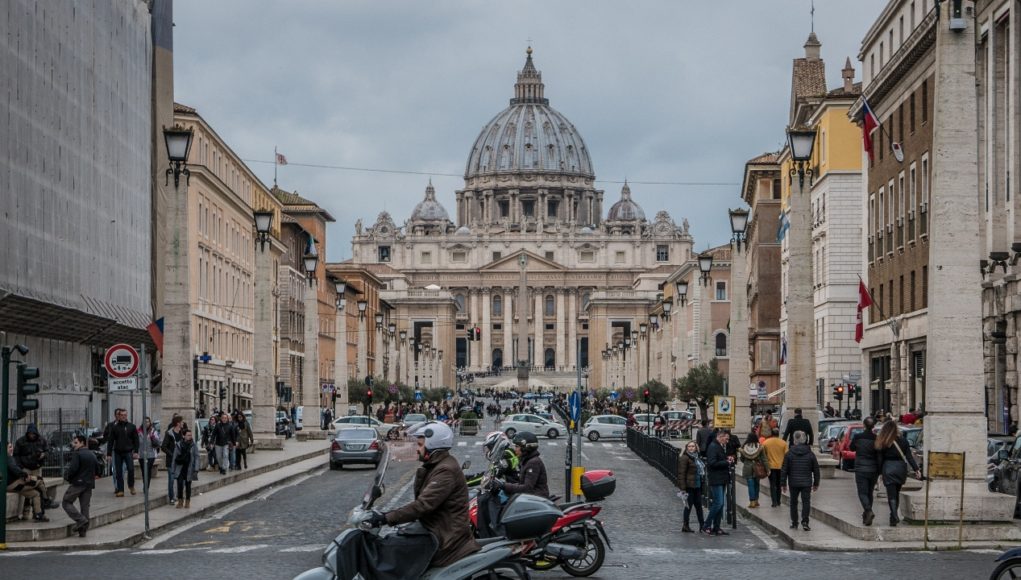Last Sunday, CBS’ 60 Minutes offered an exclusive preview of the documentary “Pope Francis – A Man of His Word.” Directed by German filmmaker Wim Wenders, the documentary offers what 60 Minutes correspondent Jon Wertheim calls “an intimate portrait of a new kind of Pope,” one who is, in Wertheim’s words, both “uncommonly popular and uncommonly polarizing.”
The 266th Pope, born Jorge Mario Bergoglio in Buenos Aires, Argentina, sat down for a series of four interviews with Wenders. According to Wertheim, Wenders was given permission by Vatican officials to ask “any question he thought apt.” The result? Pope Francis’ most powerful and private thoughts, captured throughout eight hours of footage.
Wertheim remarks that, in the documentary, Pope Francis “[speaks] spontaneously on matters both spiritual and material” without the use of prepared notes. In Wertheim’s 60 Minutes segment, the Pope is seen discussing such matters as modern society’s dangerous connection to consumerism, the juxtaposition of religious belief and scientific fact, and child sexual abuse within the Catholic church.
The Pope remarks that, in today’s world, “We live with the accelerator down from morning to night. This ruins mental health, spiritual health, and physical health. More so, it affects and destroys the family, and therefore society.” A day of rest is necessary, he believes, for people to connect with God, bond with their families, and enrich their own well-being. “We are not machines!” Pope Francis exclaims, pointing out an obvious fact he feels many in society seem to have forgotten.
Pope Francis, who, according to Wertheim, “speaks openly of evolution and says ‘the biblical story of creation is a mythical form of expression,’” also offers his thoughts on the intersections between science and religion. He refers to “Mother Earth” as “the poorest of the poorest of the poor,” believes that “we have plundered her” and “abused her,” and asserts that “we are all responsible” for contributing to the planet’s condition.
The Pope’s raw emotion was seen perhaps most prominently during his discussion of pedophilia and sexual abuse of children by Catholic priests. Wenders recalls that, when asked about these widespread scandals, Pope Francis “got so worked up” and had become “a very angry man.”
Looking directly into the camera, a visibly upset Pope Francis shares his candid thoughts: “Towards pedophilia, zero tolerance! And the church must punish such priests who have that problem, and bishops must remove from their priestly functions anyone with that disease, that tendency to pedophilia, and that includes to support the legal action by the parents before the civil courts. There is no other way out of this! Zero tolerance, because it’s a crime, no, worse! Its leaving them alive, but destroyed.”
In addition to examining these serious subjects, the interviews explore some of Pope Francis’ personal hopes and beliefs. The Pope places a high value on art, saying “an artist is an apostle of beauty which helps others live.” He also offers a unique take on the word beauty: “If you ask me: ‘give me an example of beauty, simple everyday beauty, with which we can help others feel better and feel happier,’ two things come to mind: a smile, and a sense of humor.” Finally, he shares the first few lines of the “Prayer for good Humor,” which he recites every morning: “give me, oh lord, a good digestion, but also something to digest.”
“Pope Francis – A Man of His Word” is in theaters now.
###








